With healthcare regulations constantly evolving and Medicare becoming increasingly central to healthcare business operations, there exists a pressing need for a comprehensive guide that demystifies Medicare-related challenges. This blueprint is tailored to meet that need, offering a rich compilation of resources to foster operational excellence, ensure compliance, maximize revenue, and enhance patient satisfaction within the Medicare framework.
"Transforming Medicare Management" is more than just an informational resource; it is a call to action for healthcare businesses to rethink and refine their approach to Medicare. By bridging the gap between regulatory compliance and strategic business planning, this guide aims to transform how healthcare organizations interact with one of the most significant aspects of the American healthcare system. Whether you are looking to optimize your billing processes, understand the latest changes in Medicare policy, or develop effective strategies for managing Medicare Advantage plans, this blueprint promises to be an invaluable asset on your path to success in the complex healthcare business world.
The critical role of effective Medicare management in healthcare business success cannot be overstated. Excelling in Medicare management directly correlates with an organization's financial stability, compliance, and capacity to deliver high-quality patient care. The dynamic nature of Medicare policies further complicates this task, requiring healthcare businesses to remain vigilant and adaptable in order to stay ahead.
Understanding the Medicare Landscape
At its core, Medicare is a federal health insurance program primarily for people aged 65 and older, along with younger individuals with certain disabilities or medical conditions. Medicare's structure is divided into several parts:
- Part A covers hospital insurance.
- Part B offers medical insurance.
- Part C (Medicare Advantage) includes health plan options provided by private companies approved by Medicare.
- Part D covers prescription drugs.
Each part encompasses different services, rules, and payment models, creating a multifaceted system that healthcare businesses must adeptly manage. The challenge is compounded by frequent regulatory changes, impacting everything from reimbursement rates to compliance requirements.
Overview of the Challenges Posed by the Dynamic Nature of Medicare Policies
The fluidity of Medicare policies poses significant challenges for healthcare businesses. Regulatory updates can introduce new billing procedures, alter coverage criteria, or change how services are reimbursed. Such shifts require swift adaptation by healthcare providers to avoid revenue disruptions and ensure continued compliance with Medicare rules.
One major challenge is staying abreast of these changes. The sheer volume of information and the speed at which modifications are implemented can overwhelm even the most organized healthcare management teams. Additionally, each update may necessitate revisions to billing systems, staff retraining, and sometimes even alterations to patient care protocols.
Detailed Exploration of Medicare's Structure and the Most Recent Regulatory Changes
Recent regulatory changes have underscored the importance of understanding Medicare's structure. For instance, updates to the Medicare Physician Fee Schedule and the introduction of new billing codes for telehealth services reflect the system's responsiveness to evolving healthcare delivery models. Similarly, adjustments to the Medicare Advantage and Part D programs indicate a push towards offering beneficiaries more comprehensive and cost-effective healthcare options.
Such changes affect how healthcare services are billed and reimbursed and have broader implications for healthcare business strategies. Organizations must consider these updates in their operational planning to maximize reimbursement opportunities while maintaining compliance and delivering optimal patient care.
Analysis of the Impact of These Changes on Healthcare Business Operations
The impact of regulatory changes on healthcare business operations is profound. Financially, adjustments in reimbursement rates or billing procedures can significantly affect an organization's revenue cycle management. Operationally, new compliance requirements may necessitate updates to electronic health records (EHR) systems, billing software, and internal policies.
To address these challenges, healthcare businesses must adopt a proactive approach to Medicare management. This involves regular staff training on the latest Medicare regulations, investing in technology that can adapt to regulatory changes, and developing strategic partnerships with entities that can offer expertise in navigating the Medicare system.
Effective Medicare management is a linchpin of success in the healthcare business. By profoundly understanding Medicare's structure, staying current with regulatory changes, and analyzing their impact on business operations, healthcare organizations can position themselves for financial stability, compliance, and, most importantly, the ability to provide high-quality care to their Medicare beneficiaries.
Strategic Approaches to Compliance
Navigating the Medicare landscape requires a strategic approach to compliance, given the potential risks healthcare businesses face when dealing with this complex system. Key compliance risks include inaccurate billing, failure to adhere to Medicare coverage policies, and non-compliance with the Health Insurance Portability and Accountability Act (HIPAA).
Key Compliance Risks Associated with Medicare and How to Mitigate Them
- Inaccurate Billing: This can lead to denied claims or allegations of fraud. To mitigate this risk, healthcare providers should invest in regular staff training on Medicare billing procedures and utilize updated coding software that reduces the likelihood of errors.
- Non-adherence to Coverage Policies: Failing to understand or follow Medicare’s coverage guidelines can result in non-reimbursable services. To prevent this, it is crucial to have a dedicated team that regularly reviews and updates the organization's practices to align with current Medicare coverage policies.
- HIPAA Non-compliance: Safeguarding patient information is critical. Implementing comprehensive data protection measures and conducting frequent security assessments can help mitigate data breaches or non-compliance risks.
Best Practices for Developing and Implementing a Robust Medicare Compliance Program
- Continuous Education: Establish ongoing training programs for all staff members on Medicare regulations and updates to ensure everyone understands their role in maintaining compliance.
- Compliance Officer or Team: Appoint a Medicare compliance officer or team responsible for overseeing compliance efforts, staying informed about regulatory changes, and conducting periodic audits of billing practices and procedures.
- Regular Audits: Conduct internal and external audits regularly to identify and address compliance gaps before they escalate into more significant issues.
- Open Communication: Create a culture of transparency where staff members are encouraged to report discrepancies or concerns without fear of retribution.
Optimizing Reimbursement Processes
Ensuring optimal reimbursement from Medicare requires sophisticated coding and billing techniques tailored to meet Medicare’s specific requirements. It also involves navigating the complexities of Medicare Advantage Plans and other aspects of the program.
Advanced Coding and Billing Techniques Tailored to Medicare's Requirements
- Stay Updated: Regularly update coding resources and billing software to reflect the latest Medicare coding guidelines and billing procedures.
- Utilize Technology: Leverage advanced billing software that can automatically flag common errors or discrepancies before submission to Medicare.
- Specialized Training: Provide specialized training for coding and billing staff focused on Medicare’s unique requirements to enhance accuracy and reduce claim denials.
Strategies for Dealing with Medicare Advantage Plans and Other Complexities to Ensure Optimal Reimbursement
- Understand Different Policies: Each Medicare Advantage Plan may have its own rules and reimbursement rates. Staying informed about these variations is essential for correct billing.
- Negotiate Contracts: Where possible, negotiate contracts with Medicare Advantage Plans to secure better reimbursement rates and terms for your services.
- Appeal Denied Claims: Develop a systematic approach for appealing denied claims, including detailed documentation and understanding of the appeals process for each Medicare Advantage Plan.
Implementing these strategic approaches to compliance and reimbursement processes can significantly minimize risks and enhance financial outcomes for healthcare businesses in Medicare management. Organizations can remain compliant while optimizing their Medicare reimbursement potential by focusing on education, technology, and strategic planning.
Building a Learning Organization
The ability to adapt and grow becomes invaluable in the constantly evolving healthcare industry and changing Medicare policies. Ongoing education and training are beneficial for organizations aiming to keep pace with Medicare updates and to maintain excellence in Medicare management.
The Importance of Ongoing Education and Training
Continuous learning within an organization ensures that staff remain competent and confident in managing Medicare-related tasks, from coding and billing, to ensuring compliance with the latest regulations. Education fosters a culture of excellence, reduces errors, and enhances operational efficiency and effectiveness. It is a strategic investment that pays dividends in improved outcomes and financial stability.
Recommendations for Leveraging HBMA Resources and Other Educational Tools
- Utilize HBMA Offerings: HBMA provides a wealth of resources tailored to the needs of healthcare business managers, including webinars, workshops, and conferences. These offerings are designed to keep members at the forefront of Medicare management best practices.
- Engage with Online Learning Platforms: Numerous online platforms offer courses and certifications in healthcare management, coding, billing, and Medicare policy. Encourage staff to participate in these programs to enhance their skills and knowledge.
- Subscribe to Industry Publications: Subscribing to industry newsletters, journals, and publications can facilitate keeping abreast of changes and trends in Medicare. These resources provide valuable insights into regulatory changes and industry best practices.
- Create Internal Knowledge-Sharing Forums: Establish channels within your organization for sharing knowledge and best practices related to Medicare management. This could be regular meetings, internal newsletters, or an online forum where staff can exchange information and solutions.
Conclusion
Transforming Medicare management within your healthcare business demands a strategic focus on compliance, optimization of reimbursement processes, and a commitment to building a learning organization. The dynamic nature of Medicare necessitates a proactive approach to education and training, ensuring that your team remains equipped to manage its complexities effectively.
Call to Action
For healthcare business managers, the path to excelling in Medicare management and achieving operational excellence is apparent. Leverage the resources that HBMA provides and commit to an ethos of continuous improvement and learning. Doing so will ensure your organization is well-positioned to adapt to changes, maximize reimbursement opportunities, and deliver superior care to your Medicare beneficiaries. Engage with HBMA resources, encourage ongoing education within your team, and foster a culture of excellence and innovation. Together, we can transform the future of Medicare management in the healthcare industry.



